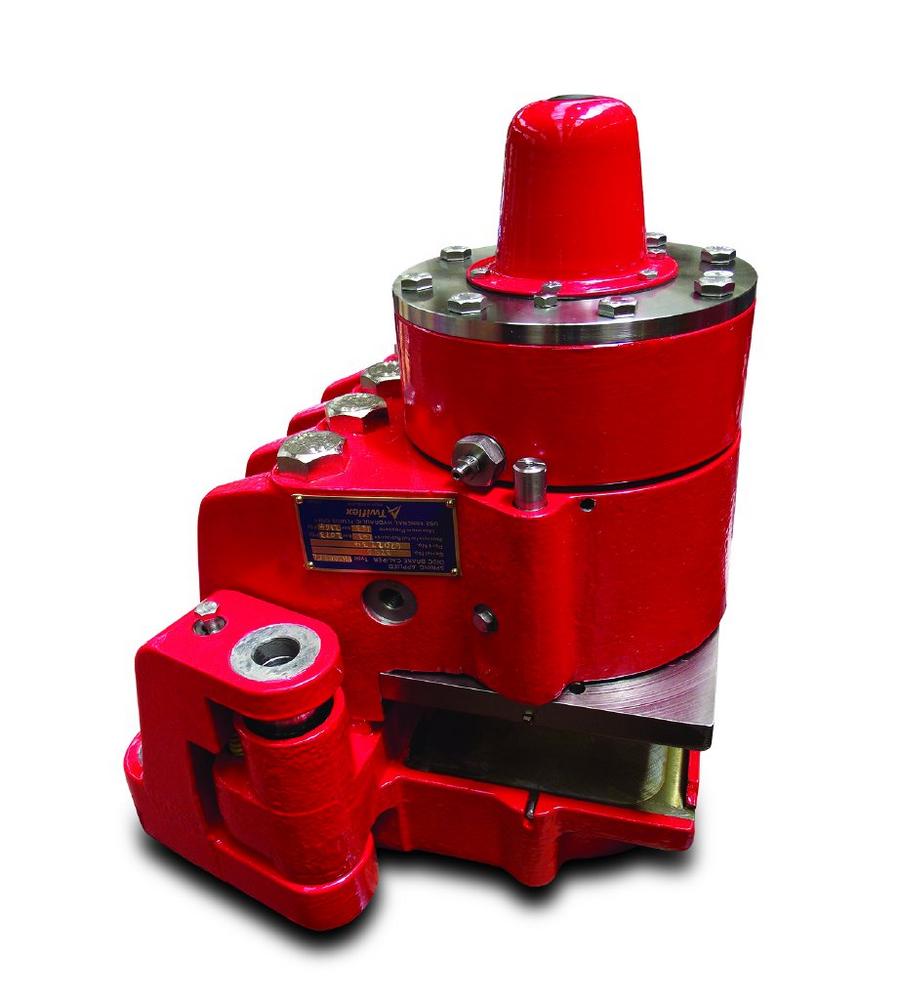Able to tow vessels many times their weight, the diminutive size of the typical tugboat belies its enormous power. With huge engines and thick steel towing cables, these powerful and durable craft provide manoeuvring services for ships in crowded harbour; can help to escort vessels out of danger in the event of technical failure; and assist in deep sea towing for assets such as oil platforms. The history of the tugboat can be traced back to 1736, when British inventor Jonathan Hulls patented a steampropelled boat to move large vessels in and out of harbours. 1801 saw the first active tugboat in service, used on the rivers in Scotland. More than 200 years later, tugboats still play an essential role in maintaining harbour safety.
Manoeuvring duties are enabled by powerful ship-to-ship towing winches, and the ability to maintain a constant tension in the cable is a key performance consideration. What would be a simple job on land is made an order of magnitude more difficult by the actions of water, wakes and waves. Winches can easily become damaged if the towing cable tension becomes excessive.
Brakes on the winch that slip and let more cable out when the tension become excessive are an important design element of the winch, but these essential components operate in the most arduous and challenging of environments. Durability is paramount, so when a major offshore winch manufacturer based in the Netherlands needed a reliable, high performance brake for a ship-to-ship towing winch, it turned to Twiflex, a brand of Altra Industrial Motion Corp.
Twiflex has over 70 years’ expertise in the design and manufacture of advanced braking technologies and is an acknowledged leader in the supply of equipment to the marine industry. Working with local distribution partner Intertech b.v., Twiflex recommended its VKSD-FL (floating) spring-applied, hydraulically-released brakes for the application.
The Twiflex VKSD-FL disc brake caliper comprises a single spring module forming the ‘active’ side of this floating unit and is available for use where space is limited or to accommodate axial disc float of ± 6mm. Braking force ratings are achieved through a combination of different springs, shims and air gap settings. The lining materials are non-asbestos, and large pad areas provide maximum heat dissipation.
The brakes are actively controlled and monitored by the customer’s hydraulic system, which regulates back pressure to ensure the desired torque level is achieved. For the winches, Twiflex supplied VKSD-FL brakes rated at a nominal 119 kN braking force (μ=0.4) based on a 2mm air gap to produce a total braking torque of 234 kNm. Each of the two onboard winches utilise three VKSD-FL brakes acting on a 1500mm diameter by 40mm thick extended stainless steel drum flange Proximity sensors on each caliper are included to signal brake on / brake off to the ships control system.
Depending on the settings, the brake design is capable of over 2 million cycles (determined by the spring fatigue life) and features a unique ‘parked-off’ system – a maintenance condition where the brake can be adjusted under hydraulic pressure so when pressure is removed the spring pack is fully relaxed and any stored energy is released.
During towing operations, if the tow cable tension exceeds 30 tons, the brakes slip to protect the winch and cable. If the load is below 30 tons the cable is reeled in. The operation repeats itself as necessary (often several times in bad weather) until the ship is alongside. All equipment was supplied fully prepared for marine use (EN plate) with external surfaces painted to ISO 12944-5: 2007 – C5M in signal red RAL3001 to meet the customer’s specification.
Twiflex Limited, with headquarters in Twickenham, England, specialises in the design, manufacture and supply of Advanced Braking Technology for industrial applications. With extensive in-house facilities, Twiflex enjoys a global reputation for quality.
Founded in 1946, Twiflex has produced more than half a million brake units, frequently for safety critical duty, for applications around the world. From textile machines in the north of England to the world’s deepest mine shaft in South Africa, Twiflex brakes are specified by engineers and system designers in every type of industry.
The image(s) distributed with this press release may only be used to accompany this copy, and are subject to copyright. Please contact DMA Europa if you wish to license the image for further use.
Stieber GmbH Dept. Twiflex
Hatschekstraβe 36
69126 Heidelberg
Telefon: +49 (6221) 304719
Telefax: +49 (6221) 304731
http://www.twiflex.com/de
![]()
